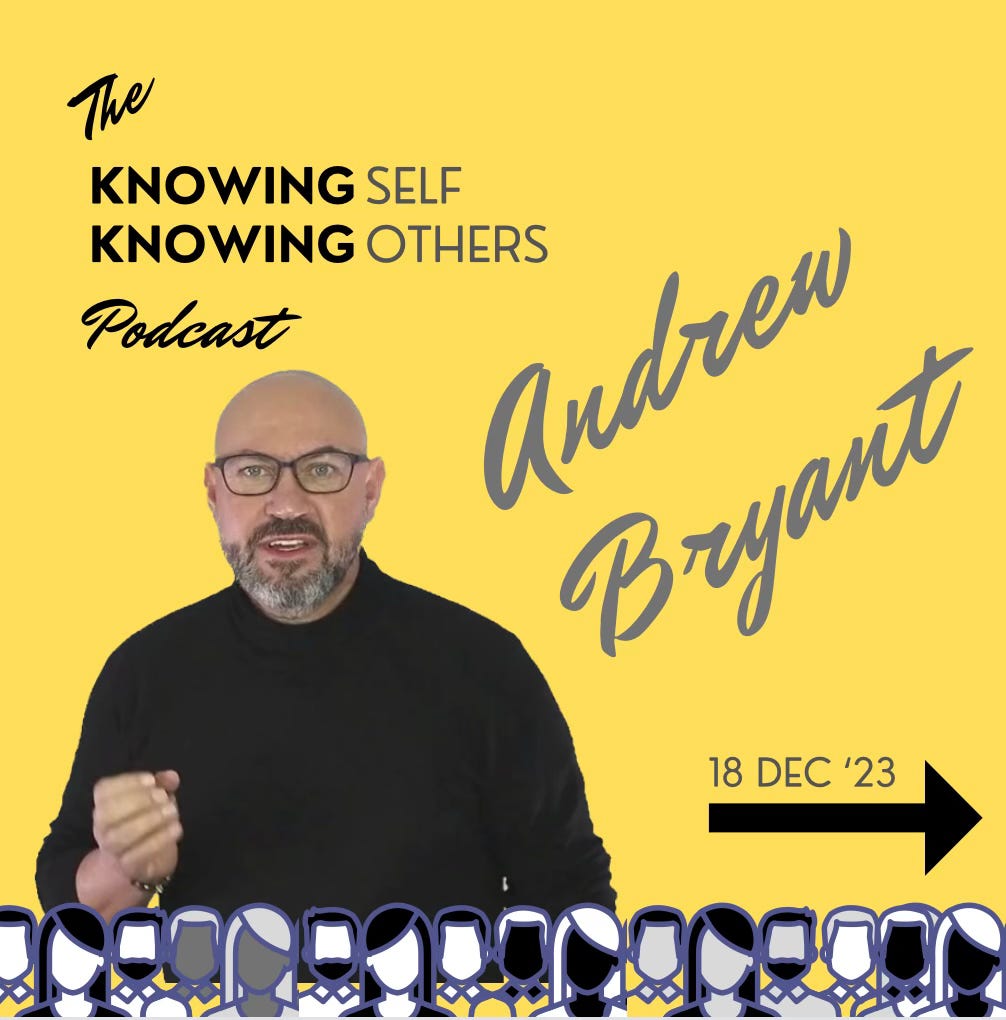In this episode I was joined by Andrew Bryant, who I first came across on the Deep Leadership Podcast with Jon Rennie. It was clear that we had common ideas and views, so I dropped Andrew a line and had a conversation. Here are some top takeaways and questions for you to reflect on from the episode
Top Takeaway 1: Self-Leadership and Biohacking for Personal Development: Using technology to track various health and performance metrics, Andrew takes a proactive stance towards self-improvement, which aligns with his principles of self-leadership. It’s about taking ownership of his own well-being and growth. The integration of biohacking into self-leadership highlights the potential for technology to really augment our understanding of ourselves and drive our personal development.
Reflection Question: How can you leverage biohacking and technology to enhance your personal development journey?

Top Takeaway 2: Language as a part of Self-Leadership: Andrew’s thoughts on the impact of language highlights the profound influence of the words we use to talk to ourselves and others on self-leadership. By recognising the power of language in shaping our emotions and perspectives, people can actively transform their self-narrative and enhance their leadership capabilities.
Reflection Question: How can you change your language to foster a more positive and productive mindset?
Top Takeaway 3: Constructive Vulnerability in Leadership: Andrew’s insights on constructive vulnerability unveil the importance of authenticity and open communication in leadership. It’s not about being vulnerable without consideration of the consequences, it’s about being measured in your vulnerability.Jacob Morgan talks about this in his latest book, too ‘Leading with Vulnerability’. By sharing personal experiences and embracing vulnerability, leaders can foster trust and connection within their teams.
Reflection Question: What impact might constructive vulnerability help you, as a leader, to facilitate meaningful connections and growth?
Top Takeaway 4: Feedback and Self-Improvement: Andrew’s approach to feedback, particularly the FIF – fact, impact, future method as well as and Marshall Goldsmith’s concept of “feedforward,” demonstrates the value of constructive feedback in self-improvement. Andrew is clear though – it really done have to be feedback, not criticism, judgment, or opinion.
Reflection Question: How can you harness feedback for your personal growth?
Top Takeaway 5: AI Tools for Self-Reflection and Self-Awareness: Our discussion about using AI tools like ChatGPT for self-reflection and seeking feedback provides a fresh perspective on self-awareness. Andrew highlighted the potential for AI to act as a helpful tool in our self-leadership journey by providing feedback from a different perspective. Andrew gave the example of having fed one of his books into ChatGPT and posing question to ChatGPT about it. The responses reflected the content of his book back at him in a way he hadn’t expected!
Reflection Question: How can you leverage AI tools to gain helpful feedback or feedforward on your self-awareness journey?
It was a great conversation, which you can also watch on YouTube
Take a listen to the whole episode on your favourite podcast player. Here are a few links for you…
Looking forward to having you on my learning journey!


